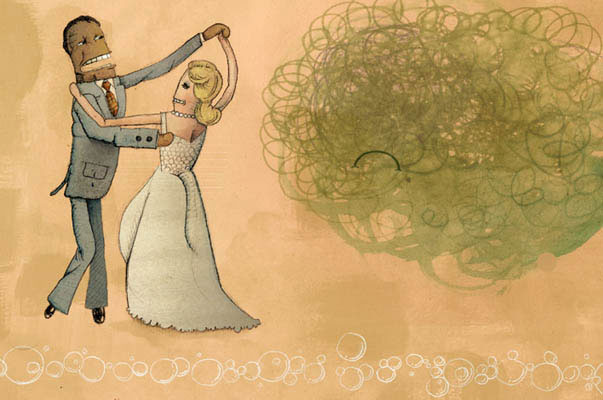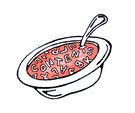 I ended my last post with a teaser about why I hate New Year's Eve. I have been thinking about it during my convalescence, and I've come up with my only, truly, flatfooted feelings about New Year's: It's dumb. Why do I think it's dumb? It seems like a truly arbitrary thing to me to celebrate.
I ended my last post with a teaser about why I hate New Year's Eve. I have been thinking about it during my convalescence, and I've come up with my only, truly, flatfooted feelings about New Year's: It's dumb. Why do I think it's dumb? It seems like a truly arbitrary thing to me to celebrate.I mean, regardless of whether you think that many holidays have been overcommercialized (Valentine's, Halloween, Christmas)-- and they have-- I think they somehow serve some deep emotional needs we have as human beings: respectively, the need to love and be loved, the need to play with social roles and identities, and the need to commemorate the waning and waxing of light.
And New Year's? I suppose it's to mark the passage of time. Somehow that one just doesn't work for me, however, because every holiday helps mark the passage of time. That's why people get giddy or married or suicidal around holidays.
Yes, somehow New Year's is one of those things that seems to be particular to only some of our species. Sort of like cruises. I went on a cruise once, with my dad after graduating high school (ok, not the greatest idea for a cruise date, but nonetheless). I never before and certainly never since have thought the idea of going on a cruise was fun. It's meant somehow for a target group that I don't belong to, never will. Same as New Year's.
In fact, the more of a non-event New Year's is, the better. My fondest New Year's Eve was the most forgettable-- watching "Blazing Saddles" with my (then) soon-to-be husband and falling asleep at 10pm.
The other New Year's where I allowed myself to be coaxed into black-tie events, setting off fireworks (well, watching fireworks being set off), or getting drunk and simultaneously hopped-up on rum and cokes were all variously forced disasters.
But perhaps I not only have a distaste for New Year's but actively hate it is because it comes with so many expectations. Particularly: The New Year's Kiss. Think When Harry Met Sally. Think: Romantic Love that rides in on a white horse and Saves You. And I've never bought that. I was never the little girl playing wedding. I was the little girl whose barbies only had a Ken around to get it on. Then he was discarded, back to the bottom of the pile to await his next romantic engagement.
That's not to say that I feel that men are to be used and discarded. It just means that I have a general distrust that Love Can Save You/God Can Save You or that there is anything Miraculous from On High that must come in and Transform you.
Ask my cousin. Even the holidays that I celebrate with glee are peppered with play and antithesis. At one Passover Seder that she and I jointly held which was mostly attended by non-Jews, we convinced two men that the traditional hunt for the piece of matzah called the Afikomen had to be done in the manner of a three-legged race.
And why not?
The problem is that New Year's has everything to do with glamour and triumph. What's to do about that? The only thing I've figured out is to slink around and do my best to act as though it doesn't exist. Maybe make a cheese fondue if I must.
So, you out there-- yes YOU! I'm not saying that I'm going to become an avid New-Year's-celebrating, cruise-going fool, but on the off chance that I decided to do something about my New Year's attitude problem, what should I do? That's what that little comment doo-hicky is for at the bottom here anyway, in case you were wondering. Comment away...





















